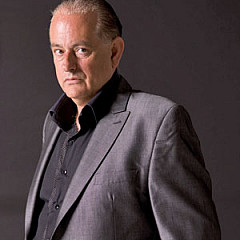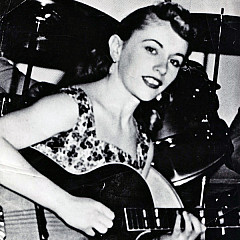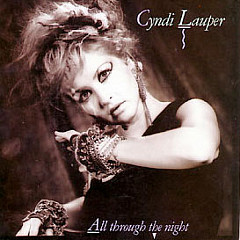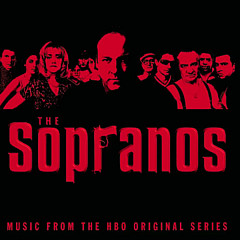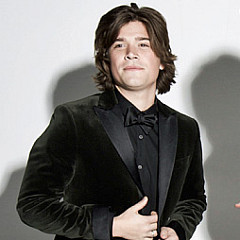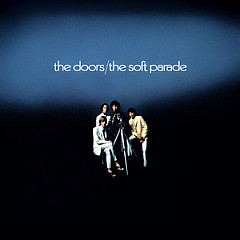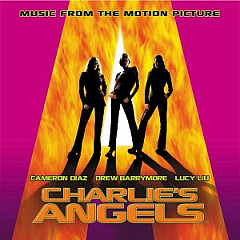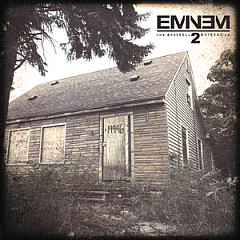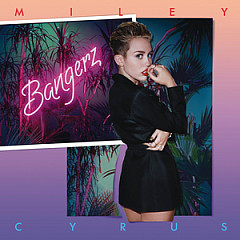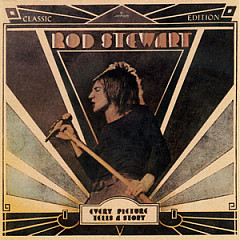After exiting the Pistols in 1977 (the press initially reported the reason being because he had too much admiration for the Beatles' music - but the record will soon be set straight, read on), Matlock has played with a variety of artists, including the Rich Kids (with a then-unknown Midge Ure), the short-lived Vicious White Kids (which also included the chap who replaced Matlock in the Pistols, Sid Vicious), and Iggy Pop. He also participated in the Pistols' sporadic reunions from 1996-2008.
In August 2018, Matlock issued a solo album, Good To Go, which sees him unite with Earl Slick and Slim Jim Phantom. Shortly before the album's release, Matlock spoke with Songfacts about his latest studio offering, as well as the stories behind several Pistols classics.
 Greg Prato (Songfacts): Let's discuss your new album, Good To Go.
Greg Prato (Songfacts): Let's discuss your new album, Good To Go. Glen Matlock: About an hour-and-a-half train ride from New York City is a place called Rhinebeck, and that's where we recorded it - at a studio called Clubhouse. It's songs that I've written over the past three or four years. We recorded it about two years ago now, but it's just coming out. I didn't want it to sound like another punk album at the age of nearly 62, so I recruited some chums to play on it. And my chums who play on most of the tracks are Slim Jim Phantom from the Stray Cats and Earl Slick from David Bowie. I just wanted to do a different kind of "filter." I've been doing many solo acoustic shows around the world, which I really like doing, and I wanted something that reflected that a bit more. I don't even play bass on the album except on one track that I cut after the initial sessions, which is a newer song.
And I roped in my mate, Jim Lowe, who over here is quite a respected engineer/producer, who does all the Stereophonics stuff, as well as many other things - old Charlatans. And he plays bass. What's good about him is he plays pretty much what I tell him to, and he's happy to do that - with his own little flash and twist on it. So that was it, really. It freed me up to concentrate on having a go at singing and strumming.
It's quite a fresh-sounding album. If anything, it sounds like loud skiffle. But it's got some rockers on it and it's got some rockabilly-flavored things, which Slim Jim brought to the occasion. And it's got a couple of big ballads on it. We even do a cover of Scott Walker's "Montague Terrace," which is very interesting. Jim is happy doing it because there was a pair of kettledrums in the studio, so he got a chance to play timpani for the first time.
Songfacts: Do you mind clearing up once and for all the rumor that you were kicked out of the Pistols "for being a Beatles fan."
Matlock: That's not true - that's something that Malcolm McLaren said. I'm not that big of a Beatles fan. I can appreciate some of the stuff - I like their more rockier stuff, but I can't stand their more mawkish stuff. "Rocky Raccoon" they should have been hung, drawn, and quartered for. But that doesn't make him [Paul McCartney] a bad bassist - that makes him a very good one.
The funny thing is, a few years back, I went to see Steve Jones in LA, and I said, "What have you been up to?" And he said, "I've been doing recording. I've got a great cover of 'I Want to Hold Your Hand'" - or something like that. I thought, "Well blimey, that's a bit ironic, isn't it?"
Songfacts: What are your memories of recording "Anarchy In The UK"?
In the end, we effectively went on strike, and said, "No, it's fine," and we got a different guy in, Chris Thomas, who has done some fantastic work over the years. We set up, started playing, and he said, "I think we've got it now."
The first part of the song is from take three, and the second part is from take five. We were waiting for Rotten to turn up and do the vocals, and he didn't rush down because he was like, "You're useless, you can't play. You've been in there for weeks." And we said, "No. We've done it." We were right all along - we just needed the right person to realize it. And then Steve loaded up the guitars over the next few days.
Songfacts: What's the real story behind the song "Submission"?
Matlock: I wrote that with John, and the story behind the song is it was written quite early. I went to a rehearsal, at a place called the Roundhouse, which is a place in London, in Camden. We were rehearsing there for a bit - the rehearsal room was downstairs. I met up with John, and Steve and Paul didn't turn up. So, me and John went over to the pub to have a drink, and he said, "Have you seen Malcolm?"
"Yeah."
"What's he got to say for himself?"
"Oh, he has an idea that we write a song."
"What about?"
"He had a title - 'Submission.'"
And John went, "What? All about domination and all that sort of stuff? I'm not having that."
So we sat down, and I can't remember which one said, "What about a submarine mission?" So, we traded line for line, and wrote the song there and then. Then, I went home that night and worked out the music. The next time we rehearsed, I said, "Look, we have this idea. It goes like this..." And it went like that, and that was it really. The song is basically about taking the Mickey out of Malcolm McLaren.
Songfacts: Did you have a hand in writing the lyrics for other Pistols songs, besides "Submission"?
And then I helped out on a couple of other songs that he was stuck for something. The song "Liar" - "You're in suspension," that was my little bit. I said, "What about suspension?" It was not long after I was finishing school, and getting in trouble, they suspend you. I thought it was a weird kind of idea, and he was like, "Ah, I don't know." But he ended up using it, so that was it.
But John got a bit of confidence in his songwriting, and that was his domain early on. A song like "Lazy Sod" [aka "Seventeen"], that was an early one as well, and that was Steve's lyric, mainly - John adapted it. So, it was a bit of a mixture. But the first three singles ["Anarchy in the UK," "God Save the Queen," and "Pretty Vacant"], it was mainly my music and John's words, but "Pretty Vacant" was my lyric, as well. And also, for someone who was accused of liking the Beatles too much, well, "Pretty Vacant" certainly isn't a soft love song, y'know?
Matlock: It was all the demos we had done. By the time we started doing that, we had our own rehearsal place - in London's Tin Pan Alley, Denmark Street. Me and Steve lived there, and it was a rehearsal room downstairs. We could leave all the gear set up and the sound guy, Dave Goodman, had a Revox tape recorder, and he recorded us there. It sounded pretty good, so we then went to Battersea Studios with those tapes and did the vocals and overdubs. In fact, on "Submission," Steve Jones plays the kettle! He played a kettle by a microphone, to make the bubbling noises. There's a good picture of him doing that, somewhere.
Songfacts: What are some memories of working with Iggy Pop? You co-wrote three tunes on his 1980 album, Soldier.
 Matlock: Yeah, although I had recorded that in 1979. After the Sex Pistols, I had a band called the Rich Kids that was going for a few years, and we had a reasonable degree of success. It featured Midge Ure, Steve New, and Rusty Egan. The band split up because two of them [Ure and New] wanted to become New Romantics, and basically started the New Romantic movement. But it fell apart. In fact, I broke the band up, and I was sitting at home, saying, "God, I don't really know what I'm going to do now. Wouldn't it be great if the phone rang?"
Matlock: Yeah, although I had recorded that in 1979. After the Sex Pistols, I had a band called the Rich Kids that was going for a few years, and we had a reasonable degree of success. It featured Midge Ure, Steve New, and Rusty Egan. The band split up because two of them [Ure and New] wanted to become New Romantics, and basically started the New Romantic movement. But it fell apart. In fact, I broke the band up, and I was sitting at home, saying, "God, I don't really know what I'm going to do now. Wouldn't it be great if the phone rang?" And I'm not kidding you, two minutes later, the phone rang and this bloke asked, "Is Glen Matlock there? You don't know me, but my name is Peter Davis, and I manage a guy, Iggy Pop. We're in town. Jim [Iggy's real name] is here, and we'd like to invite you down for a drink." I said, "Who's paying?" He said, "We are." So, I met him at the Athenaeum Hotel in Piccadilly, got on fine, and the next thing, I was on tour around Europe with him.
They had done the New Values album, and the guy who played bass on the album is a guy named Jackie Clark. He was going to play second guitar, so they were short a bass player. My agent, who represented the Pistols and the Rich Kids, he looked after Iggy. So, he suggested me, and that was it. And then he had to make an album, which was the Soldier album, which we recorded at a studio called Rockfield on the border of England and Wales.
I put some songs into the mix. There's a song called "Ambition," which I'm pretty proud of and Iggy liked it. But, it was actually a song that was going to be for the Rich Kids' second album, that we never made. Then I put on a few other ideas. I just had some riffs and some chord changes and tunes, and Iggy wrote some words to them. In fact, I had one song that I didn't really have a title, but the working title was "Forget Me Not." Iggy liked that, and I said, "No. You can't bloody call a song that." And it turned into "Take Care Of Me." It's got the immortal line, "Take care of me, somebody should, Hell, I'm pretty good." [Laughs] It's funny that song - there is a bit in it, he was seeing this girl in Berlin, and I don't think they were getting on very well. And there's a great line in the song that goes, "I need somebody to pull me out, I'm sinking like crazy in my sauerkraut. Take care of me."
And during that, David Bowie would turn up and come down to the studio - he rehearsed with us one time. James Williamson was supposed to be producing that album, and he did start doing it, but he had a big row with Iggy, and he walked out of the studio... and walked out of the music business for 30 years. He didn't pick up the guitar again until he got the call to rejoin the Stooges after Ron Asheton died. And in the meantime, becoming vice president of the Sony electronics division in Silicon Valley. I think that's quite a side-step for the bloke that played guitar on Raw Power.
James Williamson: We finished that up [New Values] and then he asked me to do his follow-up album, which was titled Soldier. But by the time that came around, we started having some artistic differences, so about a third of the way through that album we acrimoniously split company. That was the last album I did with him until this one [2013's Ready to Die].
Jim Kerr: Oh, god, I can't tell you how exciting that was. Can you believe no one had a camera? I mean, no one had a camera in those days. [Laughing] It's like, What?!? But the memory will always be there. I mean, it was so unlikely. The studio was in the Welsh countryside - what's the chance of meeting Iggy Pop in the Welsh countryside? What's the chance of his buddy, David Bowie, tagging along a couple of days later? And what's the chance of them knocking on your door and saying, "We need a few extra voices here"? And lo and behold, that's what it was.
Matlock: Yeah, I see them every now and then. I haven't seen John for years - I'm in no rush to do that. Steve and Paul I speak to every now and then - they're just a phone call away. But everybody is doing their own things. We don't have to live in each other's pockets.
August 20, 2018
For more Glen, visit facebook.com/GlenMatlockOfficial
Here's our interview with John Lydon and the Sex Pistols Songfacts.
More Songwriter Interviews

